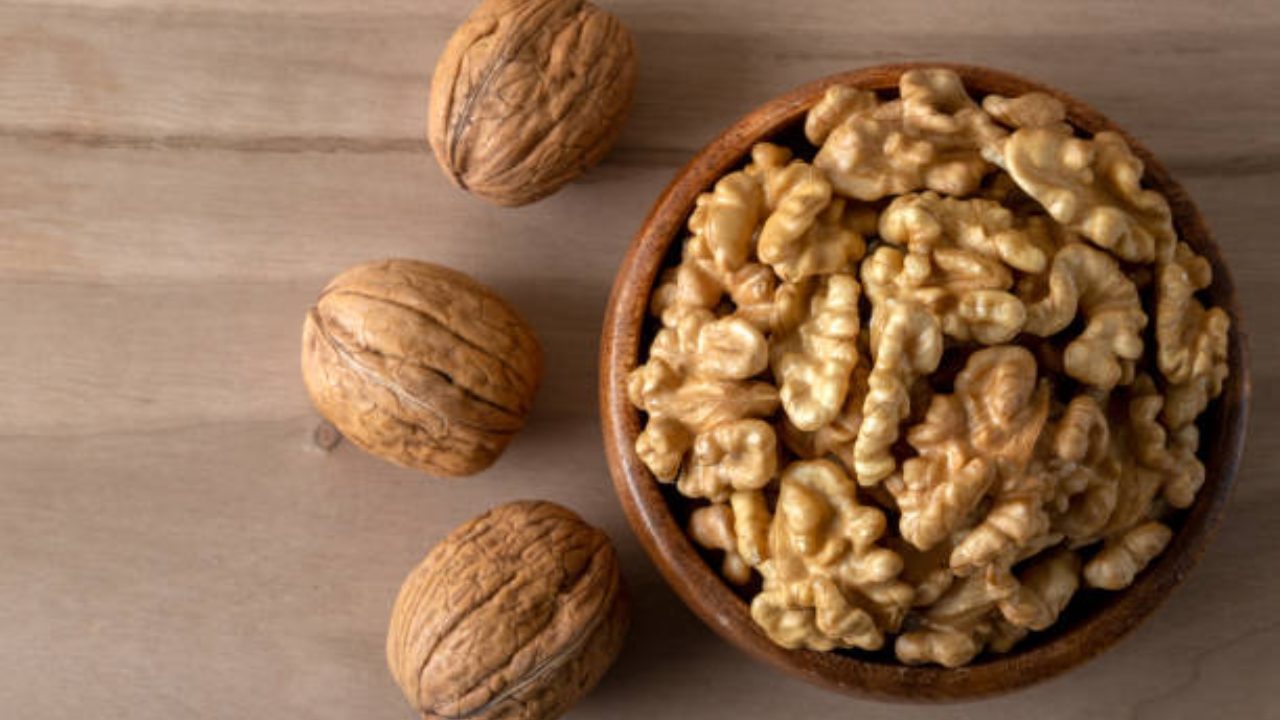If you are looking to boost your brain health through diet, walnuts might just be your new best friend. These nutrient-packed nuts are renowned for their potential cognitive benefits . Eating soaked walnuts is a common practice in several Indian households.
Kids and older people are specifically advised to eat walnuts to keep the brain healthy. The use of walnuts has migrated to Indian cuisines as well. In several cultures, walnut dishes are also eaten.

But have you ever wondered how many walnuts you should include in your daily diet to support brain health effectively? Addressing this question is important because dry fruits like walnuts are highly nutritious and should be consumed in moderation. They have high fat content. Hence it is important to know how many walnuts one should eat to get the right amount of nutrition.
Walnuts are more than just a crunchy snack. They’re packed with essential nutrients like omega-3 fatty acids , antioxidants, vitamins, and minerals. Omega-3s, particularly alpha-linolenic acid (ALA), are crucial for brain health, as they help reduce inflammation and support cognitive function.
Antioxidants like polyphenols also play a significant role in protecting brain cells from oxidative stress. Research suggests that a modest amount of walnuts can be beneficial for brain health. Studies have indicated that consuming about a handful of walnuts per day—typically around 28 grams—can be sufficient to reap the cognitive benefits.
This amount provides a significant dose of omega-3 fatty acids, antioxidants, and other nutrients without overloading your calorie intake. A handful of walnuts will roughly be equal to 4-5 walnuts (de-shelled walnuts). To make sure the nutrients of walnut get absorbed in the body easily, make sure to soak them overnight.
You can either soak them in water or in milk for an entire night. The next day peel the thin skin over the walnuts and eat it raw. Incorporating walnuts into your diet doesn’t have to be monotonous.
You can enjoy them in various ways—sprinkled on salads, blended into smoothies, mixed into yogurt, or simply as a snack. If you’re looking for more creative ideas, try walnut-crusted fish, walnut-studded baked goods, or homemade walnut butter. Consider pairing walnuts with other brain-boosting foods like berries, leafy greens, and whole grains.
This diverse approach ensures you are getting a wide range of nutrients essential for cognitive function. Incorporating a variety of nutrient-dense foods into your diet can provide comprehensive support for brain health. While walnuts offer numerous benefits, moderation is crucial.
Consuming too many walnuts can lead to excess calorie intake, which might not be ideal for those managing weight. Walnuts are high in fat, so it’s important to keep portion sizes in check to avoid potential digestive issues. Easy Ways to Boost Fiber Intake for Better Health.



















